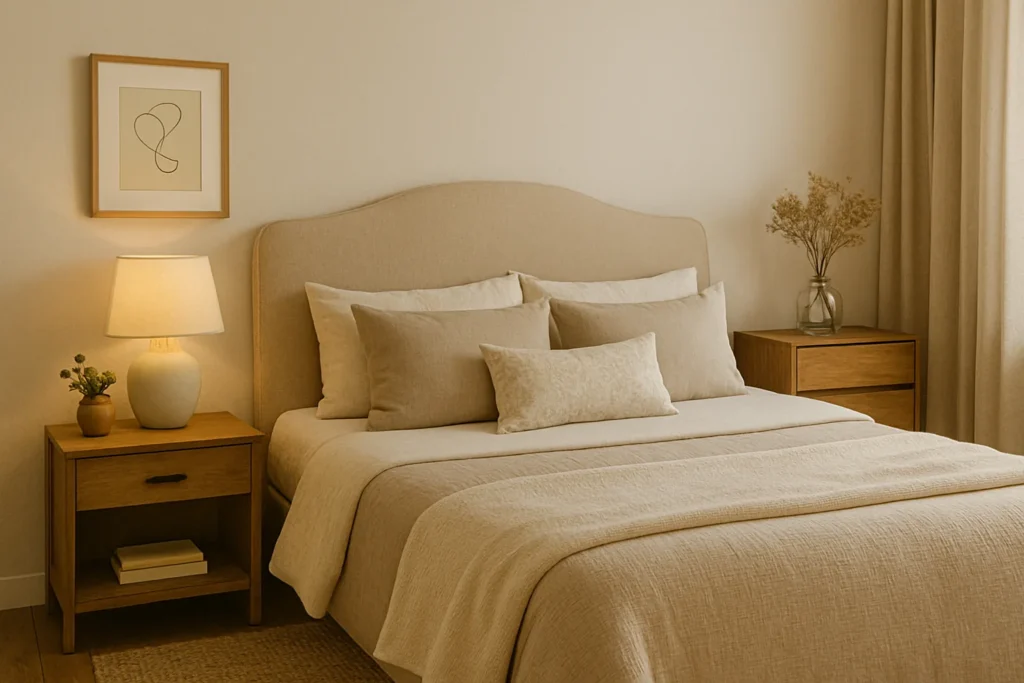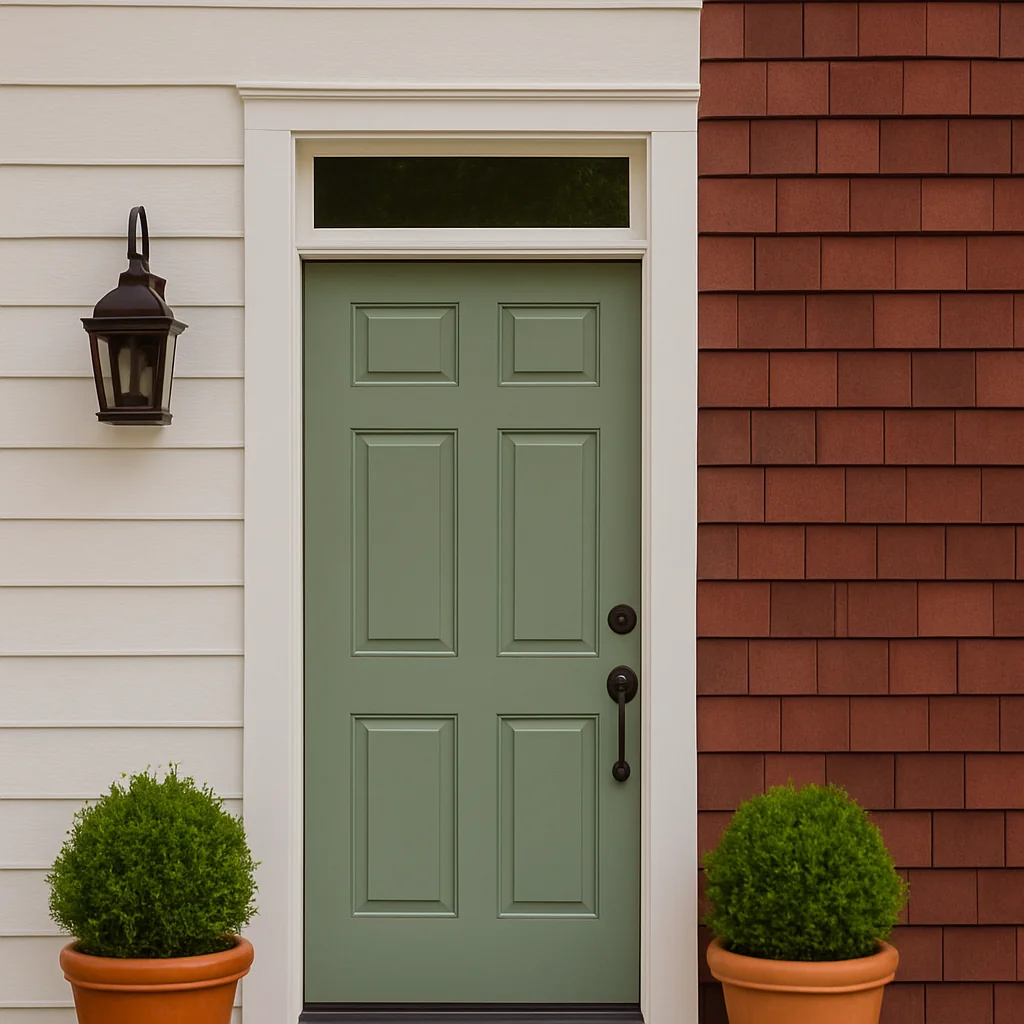Some people notice a home’s smell before they notice the decor. You walk in, and it either smells fresh, cozy, and inviting… or like last night’s takeout and a load of forgotten laundry.
If you’re tired of chasing that dreamy, clean scent—or you’re over spending $28 on candles that burn out in a week—this guide is for you. Below, you’ll find simple, low-cost, natural ways to make your house smell amazing, using ingredients you probably already have.
Whether you’re dealing with damp shoes in a tiny entryway, toddler odors baked into the sofa, or just want your space to smell as good as it looks, these are the real-deal solutions that actually work.
Start with a Clean Slate
If you really want your home to smell good, cleaning is the first and most important step. Focus on the smell culprits that quietly build up over time:
- Trash cans and recycling bins: Rinse them out monthly with vinegar and hot water.
- Fridge spills: Wipe them down with baking soda and water.
- Sink drains: Pour a mix of baking soda, vinegar, and hot water to bust odors.
- Dishwasher filters and washing machines: Yes, they need regular cleaning too.
Once the house is clean, you’ll notice a difference almost instantly. Sometimes the best smell is just… nothing.
Bring in Fresh Air
It sounds obvious, but opening windows for even 10–15 minutes a day makes a huge difference—especially in the morning. Stale air traps odors, and cross-ventilation clears them fast.
In colder months, try opening one window while you prep coffee and another on the opposite side of the house. The breeze won’t last long, but the freshness will linger.
If outdoor air quality is poor (hello, city living or wildfire season), try an air purifier with a charcoal filter. It won’t add scent, but it will remove odors naturally.
Use Natural Scent Boosters Around the House
Once your home is clean and aired out, it’s time to add scent—but gently. These tricks bring in subtle, fresh fragrance without overpowering.
1. Simmer Pots
This is an old-school trick for a reason—it works. Add water to a pot with natural ingredients like:
- Citrus peels (orange, lemon, grapefruit)
- Whole cloves
- Cinnamon sticks
- Fresh rosemary or thyme
- Sliced ginger
Simmer on low and add water as needed. Your whole kitchen will smell like a spa or a cozy bakery, depending on what you toss in.
2. DIY Linen Spray
Mix 1 cup distilled water, 1 tablespoon witch hazel, and 15–20 drops of essential oils in a glass spray bottle. Try this:
- Lavender + eucalyptus for a calm vibe
- Lemon + rosemary for a fresh, clean scent
- Sweet orange + clove for cozy warmth
Spritz onto curtains, throw pillows, pet beds, or even in the air before guests arrive.
3. Scented Wood Blocks or Cotton Balls
For a low-effort scent boost, grab some plain wood blocks (or cotton balls if that’s what you’ve got) and add a few drops of essential oil—think lavender in the linen closet or cedarwood behind your bookshelf. Hide them in unexpected spots, and they’ll quietly do the work of freshening up your home without any plugins or flames.
Make Your Entryway Smell Welcoming
Your home’s entrance sets the tone. If it smells like shoes and mystery funk, it doesn’t matter how cute your console table is.
- Place a dish of baking soda under your shoe rack to absorb smells
- Keep a cedar block or lavender sachet in the coat closet
- Use a diffuser with uplifting oils like lemon, mint, or bergamot near the door
Bonus: A natural coir doormat helps trap outdoor smells before they come in.
Add Indoor Plants That Purify Air
Houseplants don’t just look pretty—they also freshen your air. Some even add subtle scent, no plug-ins needed.
Try these:
- Herbs like basil, mint, and rosemary: Grow them in the kitchen and brush your hand over them for an instant scent boost.
- Eucalyptus: Hang a small bundle in the shower—the steam releases its natural oils.
- Lavender: A pot near a sunny window smells dreamy and calming.
Plus, plants boost mood and bring in that fresh, natural vibe Pinterest dreams are made of.
Refresh Soft Surfaces Regularly
Odors cling to textiles: pillows, blankets, curtains. If you’re not washing or airing them out regularly, they’ll dull even the prettiest room.
- Throw blankets: wash monthly
- Pillow covers: wash or spritz weekly
- Curtains: vacuum with an upholstery attachment or give them a quick shake-out
- Rugs: sprinkle baking soda monthly, then vacuum
Little routines like this go a long way in keeping your home smelling clean without chemicals.
Natural Diffusers and Alternatives to Candles
Candles are lovely—but they burn out fast and often contain synthetic fragrances. If you want a longer-lasting, natural option, try:
- Reed diffusers with essential oils and a carrier oil (like almond or fractionated coconut)
- Himalayan salt lamps: While not scented, they add a grounding, mineral warmth to a room
- Beeswax candles: Naturally purify the air while burning with a gentle honey scent
Avoid plug-ins and room sprays with “fragrance” listed as a catch-all ingredient—those often contain phthalates and other chemicals you don’t want in your cozy space.
The Unexpected Power of Routine
Sometimes the secret to a good-smelling home isn’t one big trick—it’s a handful of small habits.
- Open windows, even just a crack
- Wipe down the fridge and microwave weekly
- Light a beeswax candle while making dinner
- Add lemon slices to your dishwasher cycle
- Put essential oil drops on your vacuum filter
Over time, these tiny rituals layer up to create a home that smells… like you live well there.
What to Avoid (a Few Scent Saboteurs)
Even with the best intentions, some common go-tos can actually sabotage your efforts for a naturally fresh-smelling home.
Skip these:
- Synthetic air fresheners – They don’t clean the air; they just mask odors with chemical-heavy perfumes that linger (and not in a good way).
- Overusing essential oils – A few drops go a long way. Go overboard, and your home goes from spa to why do I have a headache? in minutes.
- Neglecting hidden stink zones – That dish sponge, the trash can lid, the bottom of the laundry hamper… those sneaky spots undo all your good work.
- Products that list “fragrance” – In candles, sprays, or cleaners, “fragrance” can be a catch-all for dozens of unlisted (and unwanted) chemicals.
Keep it simple, clean, and intentional. Your home should smell like a place you want to be — not like you’re trying to cover something up.
Final Thoughts: Scent is a Feeling
When your home smells good naturally, it doesn’t just smell better — it feels more peaceful, more alive, more you. The key isn’t perfection; it’s finding small, lovely habits that bring comfort and joy. Whether it’s a simmer pot on the stove, a sprig of rosemary in a jar, or the quiet scent of clean laundry, your home can be a place that welcomes you — nose first.


